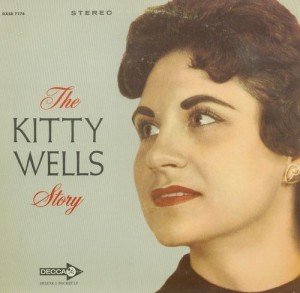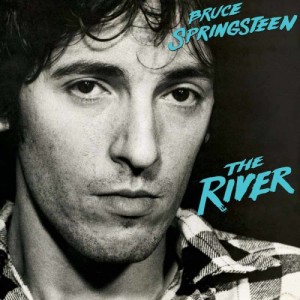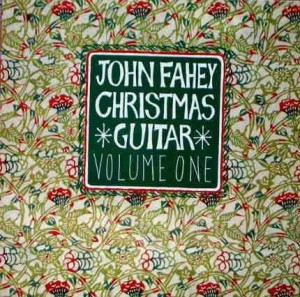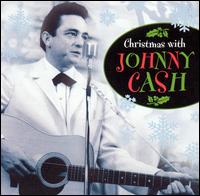Link to an article by Michael Perelman:
Debra Cassens Weiss – How “Loyalty Effect” Plays Out Among Supreme Court Justices
Link to an article by Debra Cassens Weiss:
“How ‘Loyalty Effect’ Plays Out Among Supreme Court Justices”
Danielle Paquette – Why You Should Always Buy the Men’s Version of Almost Anything
Link to an article by Danielle Paquette:
“Why You Should Always Buy the Men’s Version of Almost Anything”
Metropolis
Metropolis (1927)
Universum Film A.G.
Director: Fritz Lang
Main Cast: Gustav Fröhlich, Brigitte Helm, Rudolf Klein-Rogge
A classic of the silent era. Epic in proportions yet simple in story, this has influenced countless films that followed. Some (Elysium (2013)) are practically remakes. The special effects were groundbreaking. This — along with the likes of Brecht/Weill‘s The Threepenny Opera and ‘s Berlin Alexanderplatz and even Hilferding‘s Finance Capital — represents one of the great achievements of Weimar Germany.
Linda Gordon – Police Violence and Police Unions
Link to an article by Linda Gordon:
Kitty Wells – The Kitty Wells Story
Kitty Wells – The Kitty Wells Story Decca DXS-7174 (1963)
Kitty Wells was arguably the first major female solo recording star in country music. Before, women tended to be part of a group (think Mother Maybelle and Sara Carter of The Carter Family) or “girl singers” rotated in and out of predominantly male bands. Her music was proto-feminist, and an inspiration to many who came after her. Many of the songs on this early collection are sort of response songs, adding a woman’s rebuttal to a possibly male chauvinist song. That goes for the opener, her first big hit, “It Wasn’t God Who Made Honky Tonk Angels.” But that only amounts to “proto-” feminism in some ways, because it cedes to men the ability to set the terms of debate, offering only a rebuttal.
Wells grew up in Nashville, and her voice relies on an urban diction. Loretta Lynn was a huge Kitty Wells fan, and Lynn’s early recordings are cut from the same cloth, though many are even better than Wells’ because Lynn carried more sassy rural weight in the tone and timbre of her voice. But regardless of which female country star of the 1960s or beyond is your favorite, most owed some debt to the ways Kitty Wells (and Patsy Cline) made possible a market for independent-minded solo artists who weren’t male. This music also occupies a special place in which it is unmistakably country, with “sophistication” like having The Jordanaires on backing vocals, and elegant traded solos from instrumentalists (especially with pedal steel guitar), yet without the dumbed-down hypocrisy of the countrypolitan style that came to prominence in the 1960s.
There are a lot of great songs here, from “It Wasn’t God Who Made Honky Tonk Angels” to “Lonely Side of Town” to “Making Believe” to “A Wedding Ring Ago.” And of course there is one of the most famous country songs, too, in “Makin’ Believe.” The balance between sophisticated vibrato and half-growled words like “I’ll” and “ain’t”, against plaintive guitar, bass and often wordless vocal backing harmonies, it has just about a perfect confluence of consonance and contrast. Wells earned the title of the Queen of Country Music with these recordings. Over a half-century later they still sound great.
Erik Olin Wright – Why Class Matters
Link to an interview with Erik Olin Wright by Mike Beggs:
Bruce Springsteen – The River
Bruce Springsteen – The River Columbia PC2 36854 (1980)
So I was standing around with some people talking to critic Dave Marsh years ago, and Marsh was going on about how The River was the best of Springsteen. So I gave it a try. I can’t say I agree, at all. Another reviewer cast this off as too much like Billy Joel. These songs are a bit too slick for their own good, and self-indulgent too. Ahh, the 1980s were clearly underway by this point I guess. But, there are still some good tunes here, and the jangly 12-string guitar adds a nice touch. “Hungry Heart” is great (sounding exactly like what that kind of song should sound like), and “Sherry Darling” is a great song, somewhat ineptly produced (too much glitz and clutter). “The Ties That Bind” is the other really good one. There is a handful of other pretty decent cuts and the rest forgettable — really there is nothing to recommend about the entire second disc, which should have been omitted. Springsteen often does the thing that was by this point his shtick: the wall of sound that makes his narratives seem inevitable, with the band members shouting along trying to be heard among the din. This, I guess, is Springsteen’s go-to metaphor for American society. His sense of irony is like a fart in the wind though — people tend to like Springsteen for all his worst qualities and the irony can’t stop that from happening.
Just to draw out these points a little further, “The Ties That Bind” illustrate an important aspect of Springsteen and his politics. He came along right when the New Deal coalition was falling apart, and he represented an ultimately failed attempt to prop it up — Johnny Cash was doing this too around this time. Anyway, the point can be illustrated with reference to Sigmund Freud‘s notion of the primal father figure. Not necessarily a male parent, but any authority, the “father” represented the injunction to sacrifice one’s own enjoyment for the good of family/community/society. But the modern father instead commands individual enjoyment. This is basically what Christopher Lasch described as The Culture of Narcissism. Lament for this shift — anomie — practically pours from the lyrics of “The Ties That Bind.” But it is a a kind of inauthentic lament, because it dwells in a pre-established ethics that can’t help but contribute to the decay it purports to oppose, if for no other reason than, in hindsight, it was insufficient to prevent its own demise, though mostly because it looks backwards to recreation of dubious traditions rather than forward towards authentic freedom.
John Fahey – Christmas Guitar Volume One
John Fahey – Christmas Guitar Volume One Varrick VR-002 (1982)
John Fahey turned christmas albums into a sort of a fall-back position. Every few years or so he turned out a new one. Christmas Guitar Volume One features a number of new recordings of holiday songs he had previously recorded. The new recordings tended to use more or less the same arrangements as before. What had changed though was Fahey’s style. His playing was more deliberate, even austere. From a cynical point of view, his playing seemed to focus on a kind of clinical precision for lack of any new ideas about how to present the music. Still, even if it can fairly be said Fahey has done better with christmas music, this album is better than your run-of-the-mill holiday claptrap.
Johnny Cash – Christmas with Johnny Cash
Johnny Cash – Christmas with Johnny Cash Legacy CK 90701 (2003)
Christmas recordings predominately fall into three categories: novelty (The Chipmunks, The Ventures, Jingle Cats), smooth crooning (Bing Crosby, Johnny Mathis, Nat “King” Cole), and solemn/devout (Mahalia Jackson, John Fahey). Far and away, most christmas music that receives radio airplay is of the novelty or crooning varieties (including more contemporary pop varieties of crooning). The solemn and devout material gets its due, but tends to have more private audiences. Johnny Cash doesn’t fit any of those categories. But he did record for a major label and it is axiomatic that long-term major label acts (unless obviously of a different religion) will record christmas music. There is nothing overtly “wrong” with Cash’s treatments of christmas warhorses like “Oh Come All Ye Faithful” and “Hark, the Herald Angels Sing,” but they don’t suit him. His voice — iconic though it was — wasn’t sweetly smooth and velvety like a good crooner. He did do novelty music, but with too much of a rural “aw shucks” kick to it for the peppy, sprightly style of most novelty christmas music. Cash was a christian, and it was often his Achilles heel by allowing him to coast on inferior performances that recycled stock protestant religiosity. This collection places him somewhere in between crooning and solemn music. It’s an awkward place. Nothing goes seriously awry. Yet, nothing ever clicks either. He’s going through the motions and there are no compelling reasons to go along for the ride.





